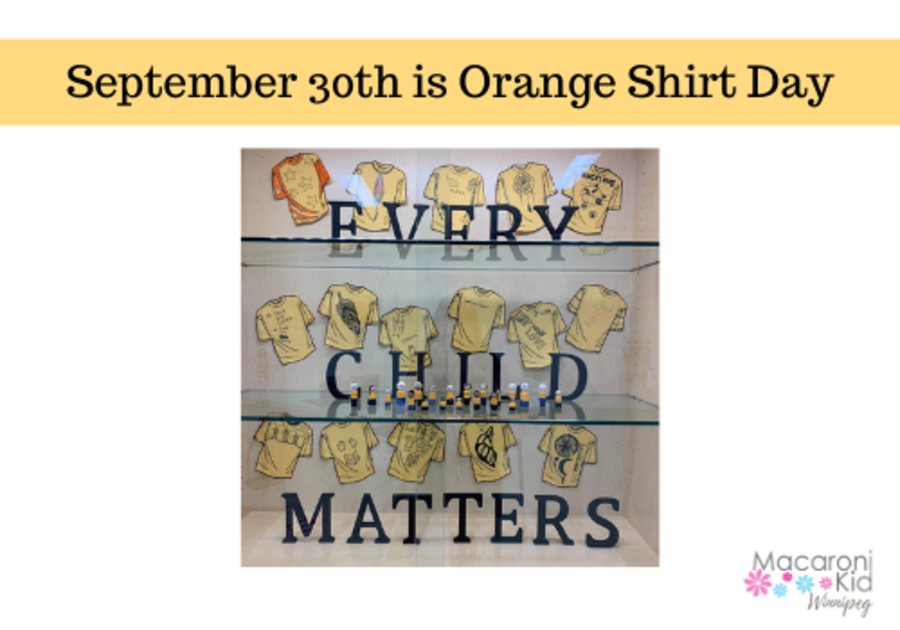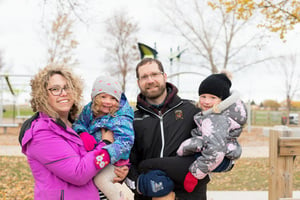You many have heard talk of Orange Shirt day in the past or maybe your kids came home from school last week saying they need you to get them an orange shirt and you aren't really sure why? Well Orange Shirt Day happens on September 30th across Canada annually and is a day to commemorate the residential school experience many had in our country.
But why an orange shirt?
It is based on the story Phyllis (Jack) Webstad wrote about her first day of residential school.
How can you and your kids get involved?
If you haven't already purchased an orange shirt from an organization like Orangeshirtday.org where proceeds are given back to organizations working on reconciliation and helping to bring awareness of the individuals, families and communities impacted by the Indian Residential Schools, you probably won't get it in time for this year's community events and to wear to school BUT you can get creative and make your own!
Grab a plan orange shirt from Michaels and make your own design. Let your kids design their own with something that has meaning to them after you talk to them about residential schools and the impact they had on our country. Make sure to include the movement's slogan "Every Child Matters".
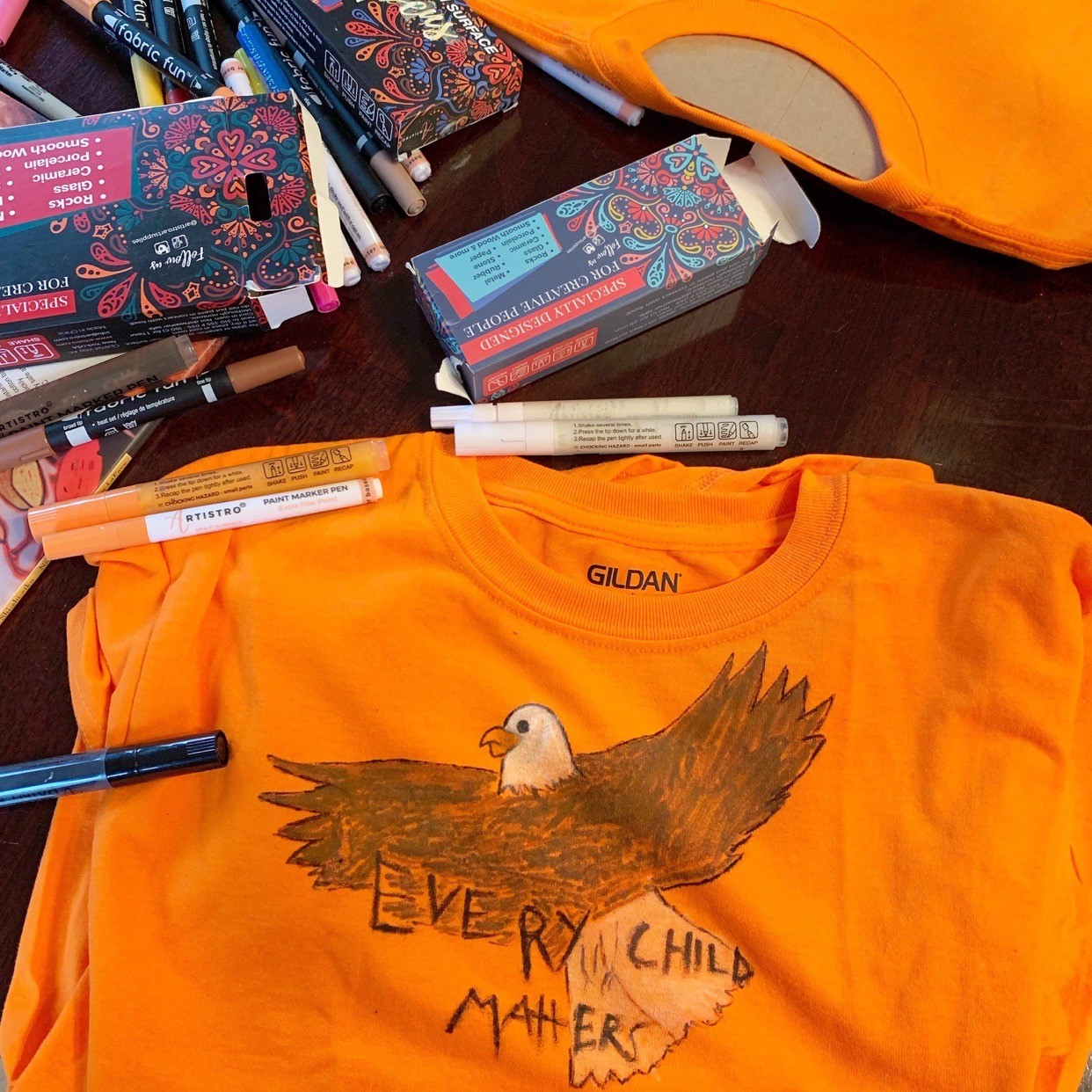 |
If you can't find a shirt, you can also wear an orange bandana, scarf, button, etc with the "Every Child Matters" slogan.
What else can we do?
While wearing a shirt to show that you are supporting the movement is great, don't forget to take the next step and educate yourself and your children.
Check out the Orangeshirtday.org event page to see what is happening locally. While 2020 is limited for in person events there are online events happening. You can also check to see if your child's school is participating and may be hosting their own assembly or lesson plans for the kids.
Head over to CBC Gem (CBC's free streaming service) where they did a round up back in June for National Indigenous History month of movies, documentaries and series highlighting the history, heritage and diversity of Indigenous people in Canada. Movies like Rhymes for Young Ghouls are very impactful (BUT not appropriate for young viewers! check the rating before sitting down with your kids).
Consider picking up a book on the subject to read with your kids. Here are a few suggestions you can find at the Winnipeg Public Libraries for youth (links to the libraries catelogue is in the title of the books):
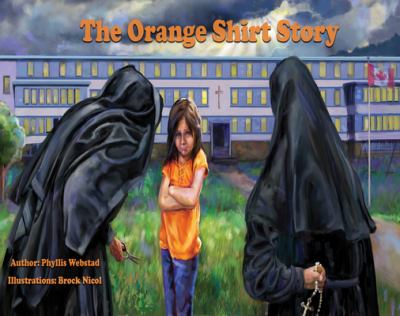 | by Phyllis Webstad "When Phyllis Webstad (nee Jack) turned six, she went to the residential school for the first time. On her first day at school, she wore a shiny orange shirt that her Granny had bought for her, but when she got to the school, it was taken away from her and never returned. This is the true story of Phyllis and her orange shirt. It is also the story of Orange Shirt Day (an important day of remembrance for First Nations and non First Nations Canadians)." | |
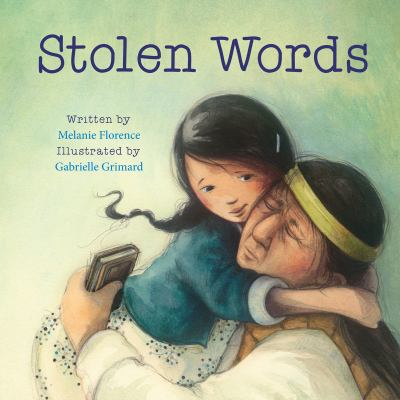 | Stolen words by Melanie Florence "This picture book explores the intergenerational impact of Canada's residential school system that separated Indigenous children from their families. The story recognizes the pain of those whose culture and language were taken from them, how that pain is passed down and shared through generations, and how healing can also be shared. Stolen Words captures the beautiful, healing relationship between a little girl and her grandfather. When she asks him how to say something in his language - Cree - her grandpa admits that his words were stolen from him when he was a boy. The little girl then sets out to help her grandfather regain his language."--Publisher's description. | |
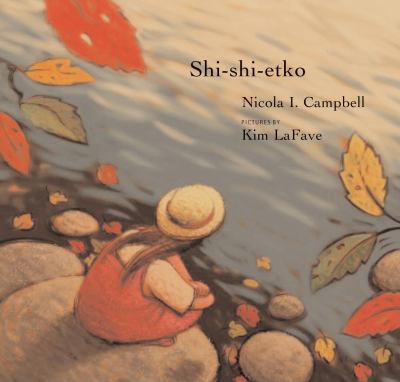 | Shi-shi-etko by Nicola I. Campbell "In just four days young Shi-shi-etko will have to leave her family and all that she knows to attend residential school. She spends her last days at home treasuring the beauty of her world -- the dancing sunlight, the tall grass, each shiny rock, the tadpoles in the creek, her grandfather's paddle song. Her mother, father and grandmother, each in turn, share valuable teachings that they want her to remember. And so Shi-shi-etko carefully gathers her memories for safekeeping. Richly hued illustrations complement this gently moving and poetic account of a child who finds solace all around her, even though she is on the verge of great loss -- a loss that native people have endured for generations because of the residential schools system." Other stories by author on subject include: "Shin-chi's canoe" | |
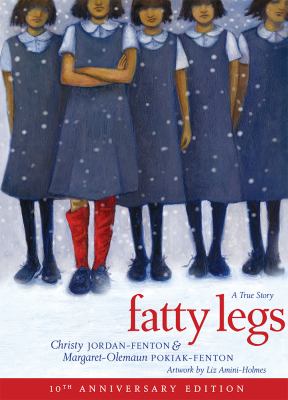 | Fatty legs : a true story by Christy Jordan-Fenton "The beloved story of an Inuvialuit girl standing up to the bullies of residential school, updated for a new generation of readers. Margaret Olemaun Pokiak-Fenton's powerful story of residential school in the far North has been reissued to commemorate the memoir's 10th anniversary with updates to the text, reflections on the book's impact, and a bonus chapter from the acclaimed follow-up, A Stranger at Home. New content includes a foreword from Dr. Debbie Reese, noted Indigenous scholar and founder of American Indians in Children's Literature, while Christy Jordan-Fenton, mother of Margaret's grandchildren and a key player in helping Margaret share her stories, discusses the impact of the book in a new preface." Other stories by author on subject include: "Not my girl", "When I was eight", "A stranger at home : a true story" | |
 | When we were alone by David Robertson "When a young girl helps tend to her grandmother's garden, she begins to notice things that make her curious. Why does her grandmother have long, braided hair and beautifully colored clothing? Why does she speak another language and spend so much time with her family? As she asks her grandmother about these things, she is told about life in a residential school a long time ago, where all of these things were taken away. When We Were Alone is a story about a difficult time in history, and, ultimately, one of empowerment and strength." Other stories by author on subject include: "Betty : the Helen Betty Osborne story", "The pact", "Sugar Falls : a residential school story" | |
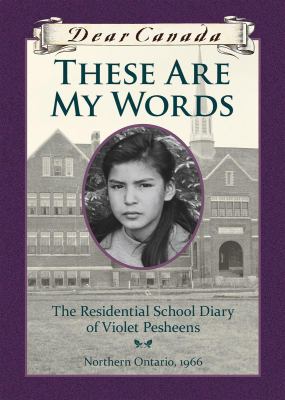 | These are my words : the residential school diary of Violet Pesheens by Ruby Slipperjack "Twelve-year-old Violet Pesheens is taken away to Residential School in 1966. The diary recounts her experiences of travelling there, the first day, and first months, focusing on the everyday life she experiences--the school routine, battles with Cree girls, being quarantined over Christmas, getting home at Easter and reuniting with her family. When the time comes to gather at the train station for the trip back to the residential school, her mother looks her in the eye and asks, "Do you want to go back, or come with us to the trapline?" Violet knows the choice she must make."--Provided by publisher. | |
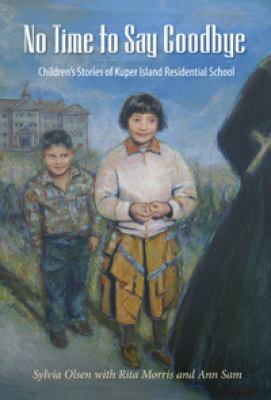 | No time to say goodbye : children's stories of Kuper Island Residential School by Sylvia Olsen "No Time to Say Goodbyeis a fictional account of five children sent to aboriginal boarding school, based on the recollections of a number of Tsartlip First Nations people. These unforgettable children are taken by government agents from Tsartlip Day School to live at Kuper Island Residential School. The five are isolated on the small island and life becomes regimented by the strict school routine. They experience the pain of homesickness and confusion while trying to adjust to a world completely different from their own. Their lives are no longer organized by fishing, hunting and family, but by bells, line-ups and chores. In spite of the harsh realities of the residential school, the children find adventure in escape, challenge in competition, and camaraderie with their fellow students. Sometimes sad, sometimes funny, always engrossing, No Time to Say Goodbyeis a story that readers of all ages won't soon forget." | |
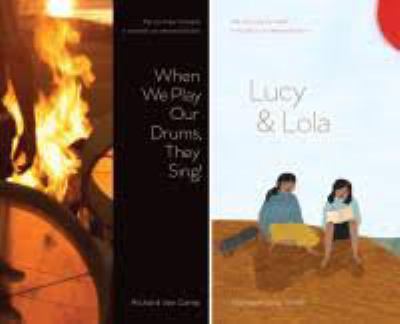 | The journey forward : novellas on reconciliation. by Monique Gray Smith ""Lucy and Lola are 11-year-old twins who are heading to Gabriola Island, BC, to spend the summer with their Kookum (grandmother) while their mother studies for the bar exam. During their time with Kookum, the girls begin to learn about her experiences in being sent — and having to send their mother — to Residential school. Ultimately, they discover what it means to be intergenerational survivors"--Publisher's website. "This is the story of 12-year-old Dene Cho, who is angry that his people are losing their language, traditions, and ways of being. Elder Snowbird is there to answer some of Dene Cho’s questions, and to share their history including the impact Residential schools continue to have on their people. It is through this conversation with Snowbird that Dene Cho begins to find himself, and begins to realize that understanding the past can ultimately change the future"--Publisher's website. | |
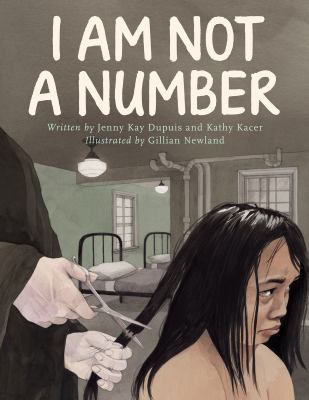 | I am not a number by Jenny Kay Dupuis "A picture book based on a true story about a young First Nations girl who was sent to a residential school. When eight-year-old Irene is removed from her First Nations family to live in a residential school she is confused, frightened, and terribly homesick. She tries to remember who she is and where she came from despite the efforts of the nuns to force her to do otherwise. Based on the life of Jenny Kay Dupuis' own grandmother, I Am Not a Number brings a terrible part of Canada's history to light in a way that children can learn from and relate to"--Provided by publisher. | |
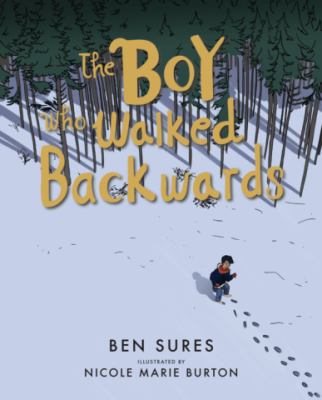 | The boy who walked backwards by Ben Sures "A story about a young Ojibway boy and his traditional upbringing on Serpent River First Nation. Leo's life turns to darkness when forced to attend residential school. Back home for Christmas, Leo uses inspiration from an Ojibway childhood game to remain with his loving family." |
Looking for fun things to do with your family in Winnipeg? Get your Free Kid-Friendly Event Calendar for Families in Winnipeg here! |
 |
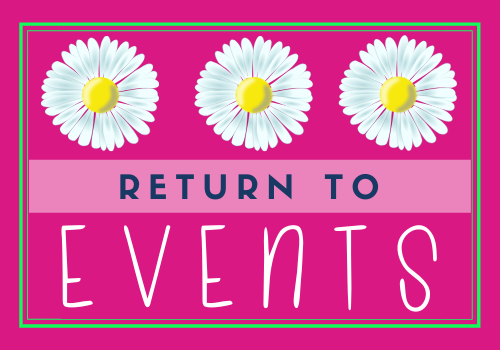 | 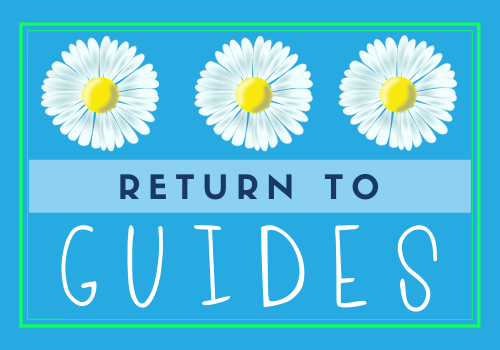 |  |
 |
 |
 |  |  |  |  |
 |

